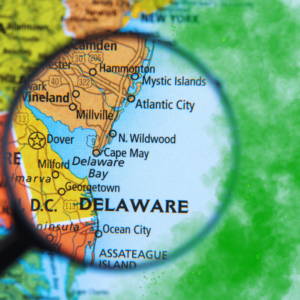Trump’s Surgeon General Pick Supported Medical Cannabis

President-elect Donald Trump Announces Intent to Nominate Dr. Janette Nesheiwat as U.S. Surgeon General
President-elect Donald Trump has revealed plans to nominate physician and Fox News correspondent Dr. Janette Nesheiwat as the next U.S. Surgeon General, a position that holds significant influence over national health messaging. While Dr. Nesheiwat has been vocal in her support of medical cannabis for certain health conditions, her broader stance on marijuana policy remains somewhat unclear. This announcement comes amidst a wider debate surrounding cannabis reform, with various members of Trump’s cabinet expressing differing views on marijuana use and its societal implications.
Dr. Janette Nesheiwat’s Stance on Medical Cannabis
Dr. Nesheiwat, a practicing physician, has long expressed her support for the use of medical marijuana, particularly for patients suffering from conditions such as seizures and cancer. In a 2018 social media post, she confirmed her support for the medical use of cannabis, stating, “I’m all for medical marijuana. Seizures, cancer patients, etc.” This position aligns with the growing acceptance of cannabis as a treatment option for certain health issues.
However, while Dr. Nesheiwat advocates for medical cannabis, she has also raised concerns about its potential risks. In her public appearances and social media posts, she has referenced studies linking marijuana use—whether smoking, vaping, or using edibles—to cardiovascular issues. For instance, she highlighted a study in which marijuana use was found to increase the risk of heart attacks by 25% and strokes by 42%.
Support for Medical Cannabis Amidst Caution on Recreational Use
Dr. Nesheiwat’s position on recreational cannabis use is less clear. While she has openly supported medical cannabis for conditions like cancer and seizure disorders, she has also advocated for caution when it comes to the broader use of marijuana. In 2019, she addressed concerns about vaping, particularly among young people, during a lung injury crisis linked to the use of contaminated THC vape cartridges.
In a September 2019 tweet, Dr. Nesheiwat remarked on the dangers posed by vaping, Her warning about the potential health risks associated with marijuana use—especially when it involves vaping—echoes the concerns of many health professionals about the long-term effects of cannabis consumption.
Reevaluation of Marijuana’s Role in Society
Dr. Nesheiwat’s views on marijuana use also extend to broader social debates. In 2021, she weighed in on the controversy surrounding U.S. sprinter Sha’Carri Richardson’s suspension from the Olympics due to a positive marijuana test. In a public statement, Nesheiwat criticized the decision, pointing out that “Marijuana doesn’t make you run faster. She did not use anabolic steroids. It was pot.” Nesheiwat’s defense of Richardson reflected her belief that marijuana should not be treated as a performance-enhancing drug.
Contrasting Views on Cannabis Policy Across Trump’s Cabinet
Dr. Nesheiwat’s views on marijuana policy are not the only ones shaping the upcoming administration’s stance on cannabis. As Trump moves forward with his cabinet selections, there is a noticeable divergence of opinions on marijuana use.
For example, Trump’s pick for the Centers for Disease Control and Prevention (CDC) director, former Republican Florida congressman Dave Weldon, is a vocal opponent of marijuana reform. Similarly, the president-elect’s choice to lead the Food and Drug Administration (FDA) is also skeptical of cannabis legalization, citing concerns about marijuana’s potential links to cardiovascular issues and its impact on mental health, particularly among youth.
In contrast, some of Trump’s other picks are more progressive on marijuana reform. Robert F. Kennedy Jr., the president-elect’s nominee for Secretary of the U.S. Department of Health and Human Services (HHS), has expressed support for legalizing marijuana and certain psychedelics for therapeutic purposes. Additionally, prominent figures like Elon Musk and Vivek Ramaswamy, who are known for their advocacy of marijuana reform, will be at the helm of Trump’s non-governmental advisory body, offering a potential pathway for a more lenient drug policy in the future.
The Role of the U.S. Surgeon General in Shaping Drug Policy
The U.S. Surgeon General is an influential figure when it comes to public health messaging, though the role does not directly influence drug policy. Despite this, the Surgeon General’s statements on drug use can significantly impact public perception. For example, under the Biden administration, Surgeon General Vivek Murthy has been an outspoken advocate for the decriminalization of marijuana, while former Surgeon General Jerome Adams, appointed by Trump, issued a 2019 advisory warning about the risks of marijuana use, particularly for adolescents and pregnant women.
While Dr. Nesheiwat’s nomination to the position of Surgeon General does not guarantee a radical shift in marijuana policy, her medical expertise and media presence suggest that she may play a significant role in guiding public health conversations around cannabis. If confirmed, Nesheiwat’s stance could help shape how the Trump administration navigates the complex and evolving issue of marijuana use in America.
Uncertainty Ahead for U.S. Cannabis Policy
As President-elect Trump prepares to take office, his cabinet choices reveal a patchwork of attitudes toward marijuana use and reform. While figures like Dr. Nesheiwat may advocate for medical marijuana in certain contexts, other appointees remain skeptical or outright opposed to broader marijuana legalization. The future of U.S. marijuana policy under the Trump administration is likely to be influenced by these diverse views, with public health leaders like Dr. Nesheiwat playing a key role in shaping the national conversation. However, for now, the debate continues, and the position of Surgeon General remains a pivotal part of that ongoing discours.











